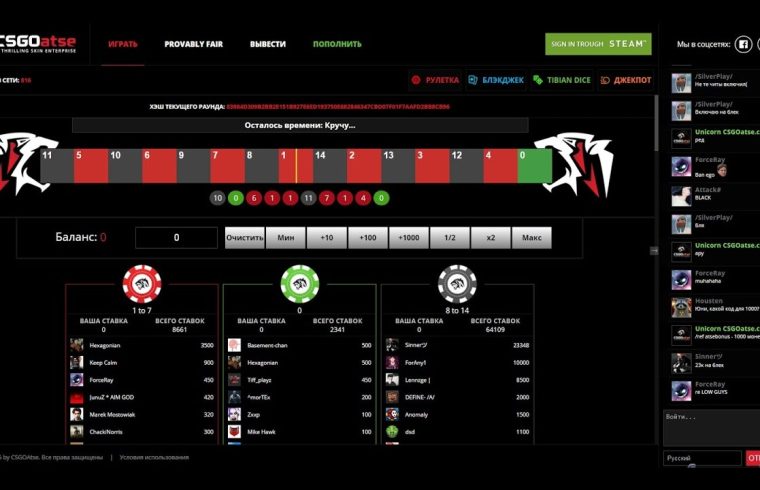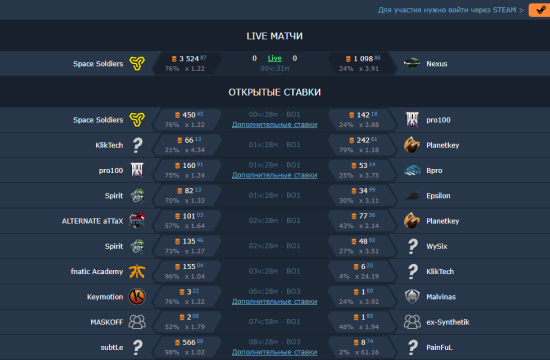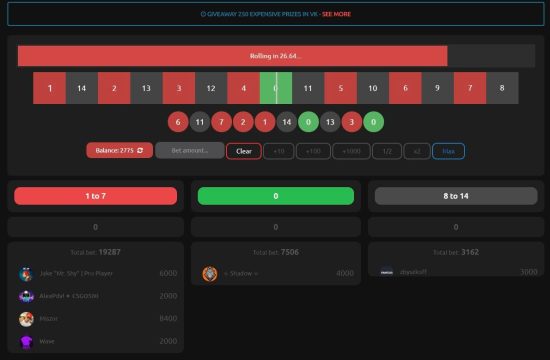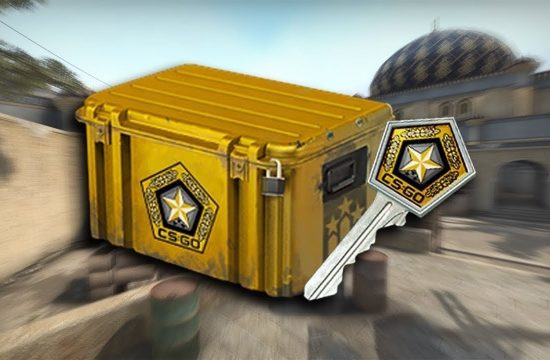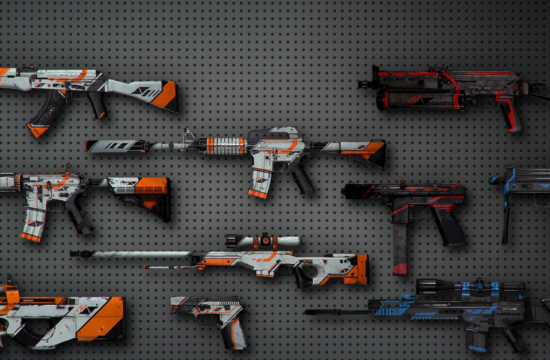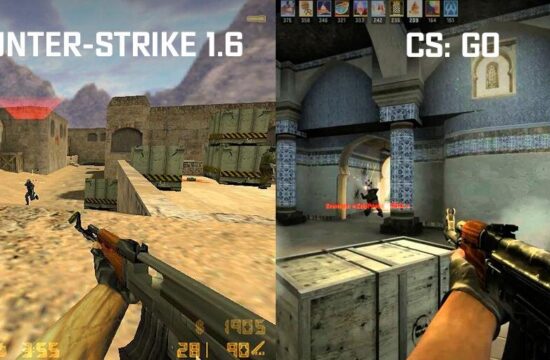Counter-Strike 2 (CS2), continuing the tradition of its predecessors, offers players to collect skins – cosmetic items for weapons and equipment that do not affect gameplay, but allow you to personalize your appearance. An entire economy has formed around skins, such phenomena as skin roulettes. In this article, we will consider what skin roulettes are in CS2, how they work, and what players should pay attention to.
What are skin roulettes?
Skin roulettes are online platforms where players can put up their skins in the hope of winning more valuable items. The mechanics of roulettes are based on randomness: players choose their skins, and then the system randomly selects a winner who receives all or part of the bets.
The main elements of roulette include:
- Bets: Players choose the skins they want to bet. The higher the skin, the greater the chance of winning.
- Percentage Chance: The probability of winning depends on the value of the skin the player bets. The more expensive the item, the higher the percentage chance.
- Draw: At the end of the round, the system randomly selects a winner from among the participants.
How do skin roulettes work?
The mechanics of roulettes are quite simple, but it is important to understand that this is gambling. Here’s how the process typically works:
- Choosing Skins: Players connect their Steam accounts to the platform and select the skins they want to bet.
- Making a Bet: The skins are submitted to the platform and the player receives a ticket (or tickets) corresponding to the bet.
- Waiting for the Draw: Once the number of bets has been reached or the timer has expired, the platform randomly selects a winner.
- Collecting the Winnings: The winner receives all or part of the skins that were bet by other participants.
Risks Involved with Skin Roulettes
While skin roulettes may look exciting, simple, straightforward items that involve risk leverage:
- Gambling: Skin roulettes are essentially gambling. As with any form of gambling, the losing conditions are high and players can lose valuable skins.
- Opacity: Some platforms may not use transparent algorithms to select the winner, which can lead to manipulation and fraud.
- Legal aspects: Gambling, including skin roulette, may be illegal in some countries. This can lead to account bans, confiscation of winnings, or other legal consequences.
- Fraud: Not all roulette sites are reliable. There is a risk associated with fraudulent platforms that can steal skins or not pay out winnings.
How to avoid the risk?
If you still decide to participate in skin roulettes, it is important to Follow our rules:
- Choose trusted platforms: Look for reviews and recommendations from other players to make sure the site is reliable.
- Limit your bets: Set a limit for the number of skins you are willing to bet and stick to it.
- Be careful with unfamiliar sites: Do not link your Steam account to untrusted platforms to avoid the risk of hacking or theft.
- Remember the risks: Always remember that roulettes are gambling, and the probability of losing is high. Don’t bet skins you’re not willing to accept.
Alternatives to Skin Roulettes
If skin roulettes are too risky, there are a few alternative ways to get or replace skins:
- Skin Trading: You can open skins with other players directly through Steam or special marketplaces.
- Case Opening:< /strong> Valve offers a case system where you can use keys to open boxes with random skins.
- Participating in Tournaments and Contests: Some platforms and communities host contests where you can win skins without risk.
Skin roulettes in Counter-Strike 2 can be a fun, but risky way to get rare items. It’s important to remember that this is a form of gambling, and the likelihood of losing is always high. If you decide to participate in roulettes, do so responsibly and with an understanding of all the countries with this risk. Otherwise, it is worth setting up alternative ways to get skins that are not associated with such serious risks.
